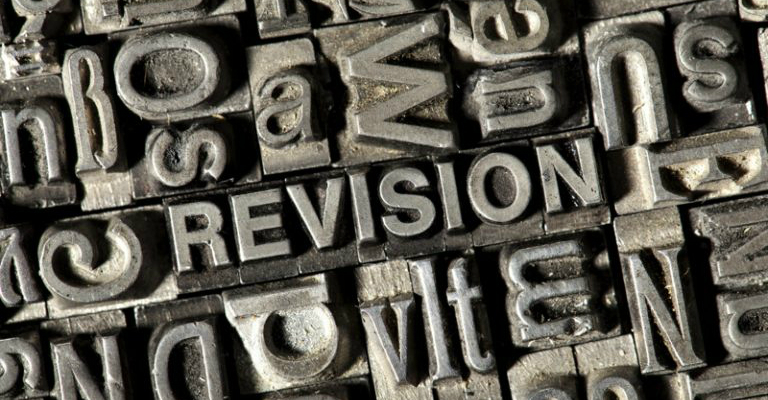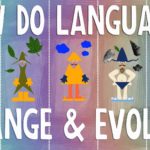How To Ace Your Speaking Assessment – Cam Worsley
Drei dicke dumme Damen donnern durch das dicke doofe Dorf.
Did you know: there are 108 words for potato in Hawaiian, and 47 for banana!
Did you know: in Amharic, ‘aye’ means ‘no’. In Yiddish ‘finger’ means ‘toe’. In Georgian, ‘mama’ means ‘papa’. In Indonesian, ‘air’ means ‘water’.
Did you know: in Germany, Rice Krispies don’t go ‘snap, crackle and pop’!
They go ‘knipser! knasper! knusper!
In France, its ‘cric! crac! croc!’
In Spain, ‘cris! cras! cros!’
But why am I telling you this? What life-changing significance does knowing what a rice-grain cereal sounds like bestow upon your life?

Well, I will enlighten you.
You see, ever since the first man was able to make sounds, we have used language to communicate. If we heard what it could sound like, it wouldn’t sound like any intelligent dissertation to us, but to them, they could use sounds and gestures to network danger, infatuation, territorial threats and many other things to others.
However today, though our speech has become more refined as our bodies and minds have developed, language still holds the same purpose to this very day. But as humans started to disperse across the continents, different sounds started to become associated with the same things. Like ‘water’ is water to us, but ‘air’ is water in Georgian. And over time this continuous changing and evolving of speech has descended into over 7,000 languages worldwide. 90% of them are spoken by fewer than 100,000, while 25% are spoken by fewer than 1000 people.

However, I haven’t answered your question; why do you need to know this? Well, let me digress again! In the two minutes that it has taken you to read this, or however long you’ve been paying attention, you would have noticed that in this short space of time you have read and recognised 366 words, 174 unique words, with the average person being able to recognise six synonyms for each word, that’s 1,044 words you know just from this paragraph, give or take. The average teenager knows more than 35,000 words, easily, the average 4-year-old only knows 5,000.
But again, why is this useful? Well it’s useful because, whether you believe it or not, you don’t need to know a lot of words to be classed as fluent in a different language. Its true! You could be RHS’ next best linguists, know over 10,000 words in a second language, but in actual fact, 8,000 of them can just be different words for the 2,000 words they know.
So, lets think about your next speaking assessment (year 11s, listen up!). Lets say you have 12 minutes to prepare some sentences before you get asked your questions, what do you do? Well, jot down any verbs, nouns and phrases you know will probably come up, then remind yourself about sentence structure and the cases, by this point, your mind is now trying to put two and two together and form grammatically correct sentences. By the middle of year 11, if you are an averaging B/6-7 grade student, you would have learnt just over 2 thousand words – or more – for your entire GCSE!
And another “fun fact”, 1/3 of English is actually French! This is mainly due to the Norman conquest.
And 90% of English words are derived from German! For an example, take the word town – it’s actually a cognate with ‘Zaun’- ‘Zaun’ means ‘fence’ in German. The word ‘Angst’ is the same, ‘fußball’ = football, ‘machen’= to make, ‘Das Buch’ = the book, ‘abseil’ is the same for both, ‘wer’ is who, and ‘wo’ is where – I think we got mixed somewhere with that.
From French, we have words such as menu, restaurant, chic, brunette, fiancé, genre, souvenir, coup, cliché, boutique… the list goes on.
So you know more European languages than you think you know! Now it’s just a case of mastering adjective endings, cases (German), tenses, pronunciation, articles, grammar, word order, modal verbs, subjunctive sentences…
This may have just shut down the whole emotional high about knowing more foreign words than you think you do… But, If you apply the right strategies in your learning, then you may find that learning the grammar of a language can be a bit of a doddle.
But we need to do one key thing, and this is the important part; we need to learn REPETITION!! This is how I quickly learnt all the “complicated” rules to German grammar, such as the different articles, adjective endings, change in pronouns and prepositions that trigger the case. I made diagrams that I could link the colour with the gender and its article, and I put this in places where I would always see, like the inside of my folder, my device background, on my wall etc. I still do this today – the little bits of extra effort you make will all add up! (You may learn differently, it’s important to note that, whilst these worked for me, these tips might not suit your leaning style).
Quickly, let’s delve into another subject before we do this. As those of you taking science may know, the brain has billions of neural pathways, but, in order to quickly learn vocabulary and grammar, we need to strengthen them. So the question is, how do we do that? The simple answer is repetition. Take for example, an adult and a child, if you were to get them to learn a new language at the same time, most of the time it will be the child that can learn a language the fastest. But why? Surely the adult is more intelligent than the child? Well, wit isn’t really a major role in this, as children have more brain plasticity than an adult. If you study how a child learns a language, they learn it through repetition and doing. Children don’t learn languages through associating words with the words they already know, they associate things between the language with what they hear, see, smell, taste and touch. Furthermore, children are not scared to get things wrong, you need to be the same. It is better to say something and get it wrong, than not say anything at all, this is because you’ll learn! Where as we grow up, we learn to think, ‘this is my language, that is not my language’, instead of trying to associate the word with their objects. Adults just associate the foreign word with the word in their native language – this is where many people fall. They just compute words like google translator, instead of learning the actual language and the way it behaves itself. Essentially, what I’m saying here is that, to learn like an adult, sometimes you have to approach things like a baby.
So, below I have listed some of the things I found to be helpful whilst preparing for my speaking assessment.
Little things to help you become the MFL egg head:
* make colour coordinated flash cards to help associate words and rules, the brain remembers images more than sentences, so make diagrams to help you!
* set yourself a goal each week. This could be learning some new vocal, or getting to grips with the imperfect.
* watch youtube videos on grammar, you never know, there could be a way you learn which is different to how everyone else does
* ask your teachers! That’s what they’re here for; there’s no shame in getting something wrong. It is better to get it wrong at this stage than in the actual exam, and it helps your teacher know where they need to focus, like having an extra lesson on sentence structure in the past tense
* ask a friend; one of you could know something the other doesn’t – from something as simple as ‘what does this word mean’, to helping you understand subordinate clauses. We all have different ways of learning, there is no shame in asking someone to explain something to you!
* make videos/pictures/quizlets to help learn quick vocab
(again, disclosure: these helped me, they may not help you – everyone learns in their own way)
This can be applied to nearly all your subjects! Taking a small amount of time each day will add up, and will substantially help you in the long run.

Steps to Success:
Number one: repetition. Now that I have repeated repetition several times, you would hopefully have remembered to repeat again and again to get yourself use to going through the drills.
Number two: the drills.
Take for example German, think about what you’re trying to express, think of the words you will use, the tense it would be in, what cases you will use and how the verb will behave. Once you get into this pattern of going through the drills, you will begin to naturally start to do this without thinking about it. Repeat!
Repeat! Repeat!
Number three: imagery.
Try to integrate your language into your daily routine. Create flash cards or pictures that are easy and you see everyday, for example an article diagram. This will basically leave an imprint of that image in your mind and you’ll be able to recall vocab, tenses or cases easily and correctly.
To take an extra step, try listening to music or watch films in your foreign
language, and try to pick up words you know, you’ll be surprised to find how much your linguistic capability will improve just by doing simple tasks like this.
Number four: ask!
This school has so many international students, German, French and Spanish alike! I know, when did this happen?! They’re here to learn English and improve their said English, so kill two birds with one stone and try to talk to each other in each language. You’ll find you’ll be helping each other by improving your linguistic skills, both pronunciation and how the language behaves. The only thing that is stopping you is your fear of getting it wrong, but that is how learning works, you’ll never succeed unless you at least try.
Number five: ace your exams! You’ve got this!
Now you’re in the right habits and right frame of mind, you’ll find that a language is not just different words for the same meaning, it’s a completely different mindset and a culture in itself. Making sure you repeat, go through the drills and immerse yourself into your language will bring 3’s up to 8’s!
Languages are incredibly useful, especially in today’s world. You will find you’ll be able to go places you never could without a second language. Businesses are always on the look out for polyglots, and with languages we can make this world closer and more connected.















Post Comment
You must be logged in to post a comment.